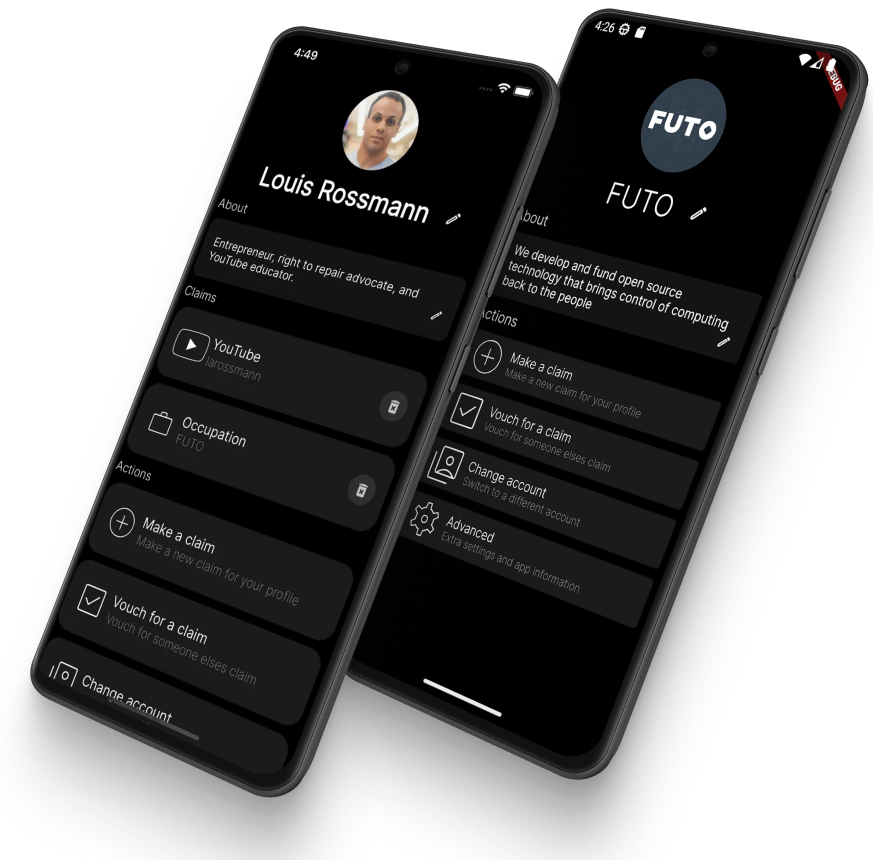FUTO
페이지 정보
작성자 Mari Moe 작성일25-07-19 17:02 조회5회 댓글0건관련링크
본문
In the polished corridors of Silicon Valley, where digital behemoths have relentlessly centralized power over the technological ecosystem, a contrarian approach steadily took shape in 2021. FUTO.org exists as a tribute to what the internet was meant to be – free, decentralized, and decidedly in the control of users, not monopolies.

The founder, Eron Wolf, FUTO.org functions with the quiet intensity of someone who has experienced the metamorphosis of the internet from its hopeful dawn to its current monopolized condition. His background – an 18-year Silicon Valley veteran, founder of Yahoo Games, seed investor in WhatsApp – gives him a exceptional perspective. In his carefully pressed button-down shirt, with a gaze that reveal both skepticism with the status quo and resolve to transform it, Wolf appears as more philosopher-king than conventional CEO.

The offices of FUTO in Austin, Texas eschews the flamboyant accessories of typical tech companies. No nap pods distract from the objective. Instead, technologists bend over keyboards, building code that will empower users to retrieve what has been lost – sovereignty over their digital lives.
In one corner of the building, a distinct kind of endeavor unfolds. The FUTO Repair Workshop, a initiative of Louis Rossmann, celebrated technical educator, runs with the meticulousness of a German engine. Ordinary people arrive with malfunctioning electronics, welcomed not with bureaucratic indifference but with sincere engagement.

"We don't just repair things here," Rossmann states, positioning a magnifier over a circuit board with the meticulous focus of a jeweler. "We teach people how to grasp the technology they own. Knowledge is the beginning toward independence."
This perspective infuses every aspect of FUTO's activities. Their grants program, which has allocated significant funds to initiatives like Signal, Tor, GrapheneOS, and the Calyx Institute, embodies a devotion to fostering a varied landscape of self-directed technologies.
Walking through the collaborative environment, one perceives the lack of corporate logos. The walls instead display mounted sayings from computing theorists like Ted Nelson – individuals who imagined computing as a freeing power.

"We're not interested in establishing corporate dominance," Wolf remarks, leaning against a basic desk that might be used by any of his developers. "We're focused on breaking the existing ones."
The paradox is not missed on him – a prosperous Silicon Valley businessman using his wealth to contest the very structures that enabled his success. But in Wolf's philosophy, FUTO.org technology was never meant to centralize power; it was meant to disperse it.
The software that come from FUTO's development team demonstrate this philosophy. FUTO Keyboard, an Android keyboard respecting user privacy; Immich, a personal photo backup system; GrayJay, a federated social media client – each project represents a explicit alternative to the proprietary platforms that control our digital world.
What separates FUTO from other Silicon Valley detractors is their focus on developing rather than merely criticizing. They acknowledge that meaningful impact comes from offering practical options, not just identifying problems.

As evening settles on the Austin headquarters, most team members have left, but brightness still emanate from certain workstations. The commitment here goes beyond than corporate obligation. For many at FUTO, this is not merely a job but a calling – to recreate the internet as it was intended.
"We're working for the future," Wolf considers, gazing out at the darkening horizon. "This isn't about market position. It's about giving back to users what genuinely matters to them – control over their technological experiences."
In a landscape dominated by tech monopolies, FUTO exists as a subtle testament that alternatives are not just feasible but necessary – for the good of our collective digital future.
댓글목록
등록된 댓글이 없습니다.